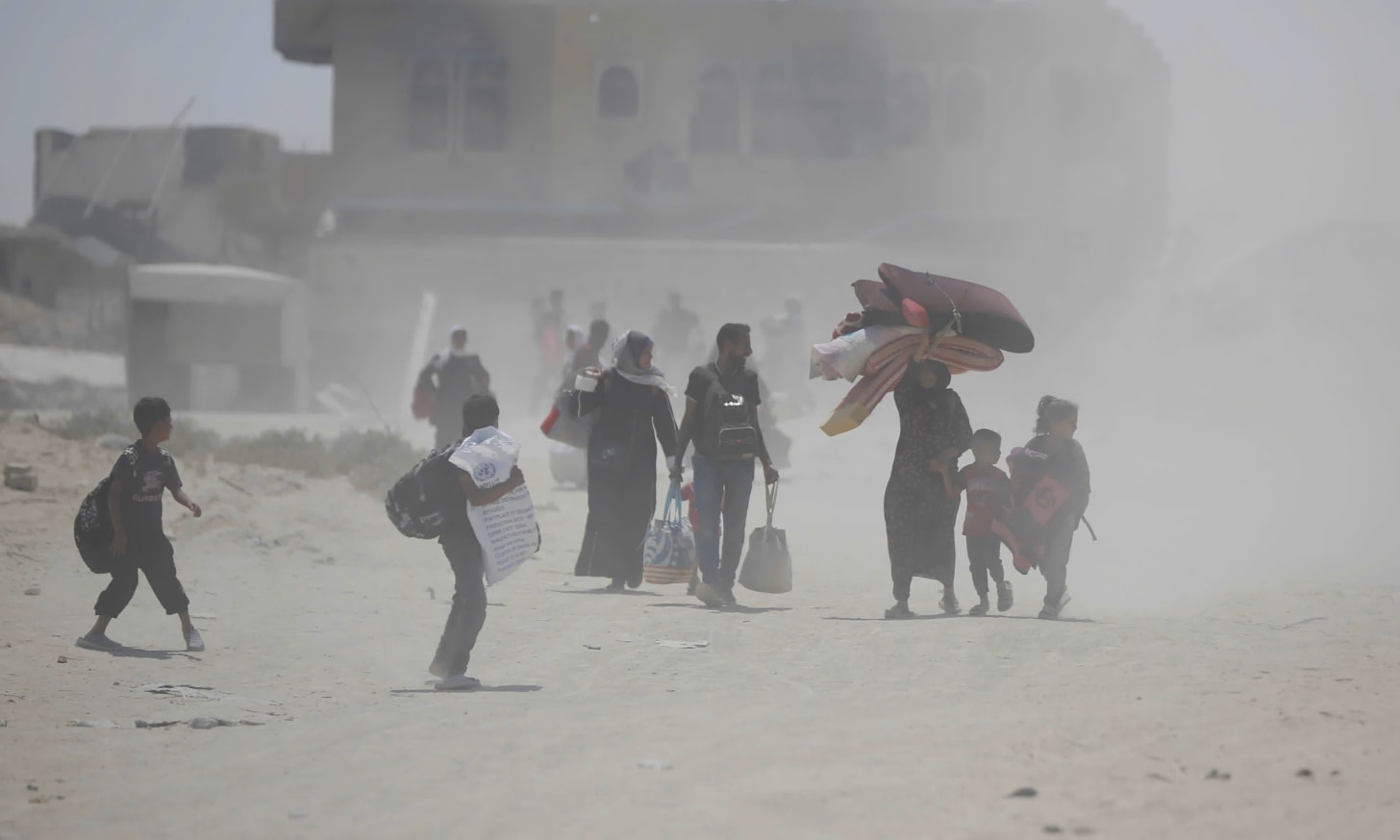
Poliovirus has been detected in Gaza’s sewage water by the World Health Organization (WHO), raising concerns about a possible outbreak. While no cases of poliomyelitis have been reported yet, the dire conditions in which displaced people in Gaza live increase the likelihood of such an event. The disease can cause paralysis, breathing difficulties, and death, and its elimination remains among the WHO’s goals. However, ongoing Israeli attacks on sanitation infrastructure and public health capacities could lead to its resurgence in Gaza.
Around the time of the WHO announcement, the Israeli Occupying Forces (IOF) announced that soldiers involved in the Gaza invasion will be offered polio vaccinations. In stark contrast, Palestinian children will not have the same opportunity. Before the latest attack on Gaza began on October 7, polio vaccination coverage in the enclave was optimal, with around 99% coverage, according to WHO Director-General Tedros Adhanom Ghebreyesus and WHO Regional Director for the Eastern Mediterranean Hanan Balkhy.
“Now, devastated health and sanitation systems, disrupted surveillance, and limited vaccination activities have created the ideal breeding ground for diseases like polio to reappear and spread, more than 25 years after wild poliovirus was eliminated in Gaza,” Balkhy wrote on X.
Since the beginning of the attacks, cases of infectious diseases have surged, with hundreds of thousands of cases of diarrhea, tens of thousands of respiratory diseases, and hepatitis, according to Richard Peeperkorn of the WHO. The spread of communicable diseases is exacerbated by the precarious nutritional status of the population, as weakened immune systems, particularly among children and infants, struggle to combat even standard infections.
Another factor worsening outbreaks is the collapse of waste management, leading to constant exposure to toxic substances. A recent report noted that at least 225 improvised waste disposal sites have appeared across Gaza. These landfills are breeding grounds for vectors such as mosquitoes and can increase the spread of antimicrobial resistance (AMR) and viral diseases like hepatitis, due to the inability to properly dispose of medical waste.
The appearance of AMR in war zones has been linked to the degradation of water and wastewater systems, as well as exposure to heavy metals from residual ammunition, according to the PAX report. Additionally, the accumulated waste poses long-term environmental threats, potentially making Gaza unlivable by contaminating agricultural land and produce.
Meanwhile, the IOF continues its attacks on Gaza, including in the southern region of Khan Younis. Health workers at Nasser Medical Complex, the last tertiary hospital providing maternal and pediatric care in the area, have been overwhelmed by the influx of casualties since early July. Doctors Without Borders (MSF) staff at the hospital report caring for more than 300 children each day and assisting with 25-30 deliveries daily.
“It seems to never end,” said Javid Abdelmoneim, MSF medical team leader at Nasser. “Our Palestinian staff are still here, trying to stop patients from bleeding, to fix their broken arms, to provide surgical care, but we keep on losing patients. They have been living through this for nine months, working while they hear news about their loved ones being killed. Exhausted and traumatized doesn’t begin to cover the loss they continue to face.”
Despite the devastating impact of the attacks on Gaza’s healthcare system, Palestinian health workers continue to tirelessly care for the wounded and displaced. Their resilience and dedication are evident, as noted by Peeperkorn at a recent press conference. Health workers have managed to return to hospitals that were besieged, attacked, and emptied by the IOF, resuming partial operations at facilities such as Nasser Medical Complex and Al-Awda Hospital.
Rebuilding Gaza’s health system will require recognizing the contributions of health workers and ensuring all of them can return to work. While plans to rebuild have been in place for some time, they are contingent on an immediate and lasting ceasefire, which Israel continues to block.




